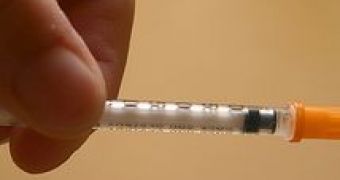Researchers at the University of Pittsburgh School of Medicine discovered that human insulin-producing beta cell can replicate for at least four weeks in a mouse model of diabetes, thanks to a single stimulatory molecule. Research also gave several molecule combinations that allow human beta cells to replicate and pointed out the differences between mouse and human beta cells that could determine the best approaches in treating diabetes. The study was published in Diabetes, a journal of the American Diabetes Association.
Diabetes is caused by insufficient insulin production that triggers abnormal blood sugar levels. Thanks to several experiments, the team of Nathalie M. Fiaschi-Taesch, Ph.D., assistant professor of endocrinology, and lead author of the study, discovered that combining high amounts of the regulatory molecules cdk4 or cdk6 with a variety of D-cyclin proteins, especially cyclin D3, determines human beta cell to replicate in test tubes. Dr. Fiaschi-Taesch said: “We didn't expect cyclin D3 to ramp up beta cell replication so strongly when it was used with either cdk4 or cdk6. There was no known role for cyclin D3 in human beta cell physiology.”
Cyclin D2 can be found in rodent beta cells and it is essential for their function and replication, nevertheless, research showed that it is barely detectable in human cells. Scientists also found out that beta cell replication could be sustained for at least four weeks in mice transplanted with human beta cells engineered to overproduce cdk6; the blood sugar level got back to normal, which showed that the cells produced the necessary insulin properly.
Mice do not make cdk6 naturally, but they posses cdk4 and cyclins D1 and D2. After experimenting, scientists realized that by following standard rodent studies of beta replication, they might have followed the wrong molecules, said senior author Andrew F. Stewart, M.D., professor of medicine and chief of the Division of Endocrinology and Metabolism, Pitt School of Medicine, according to e! Science News.
“Our team was the first to show that adult human beta cells can be induced to proliferate or grow at substantial rates, which no one thought possible before,” he added. “Now our effort has been to unravel these regulatory pathways to find the most effective strategy that will allow us to treat – and perhaps cure – diabetes by making new insulin-producing cells.”

 14 DAY TRIAL //
14 DAY TRIAL //